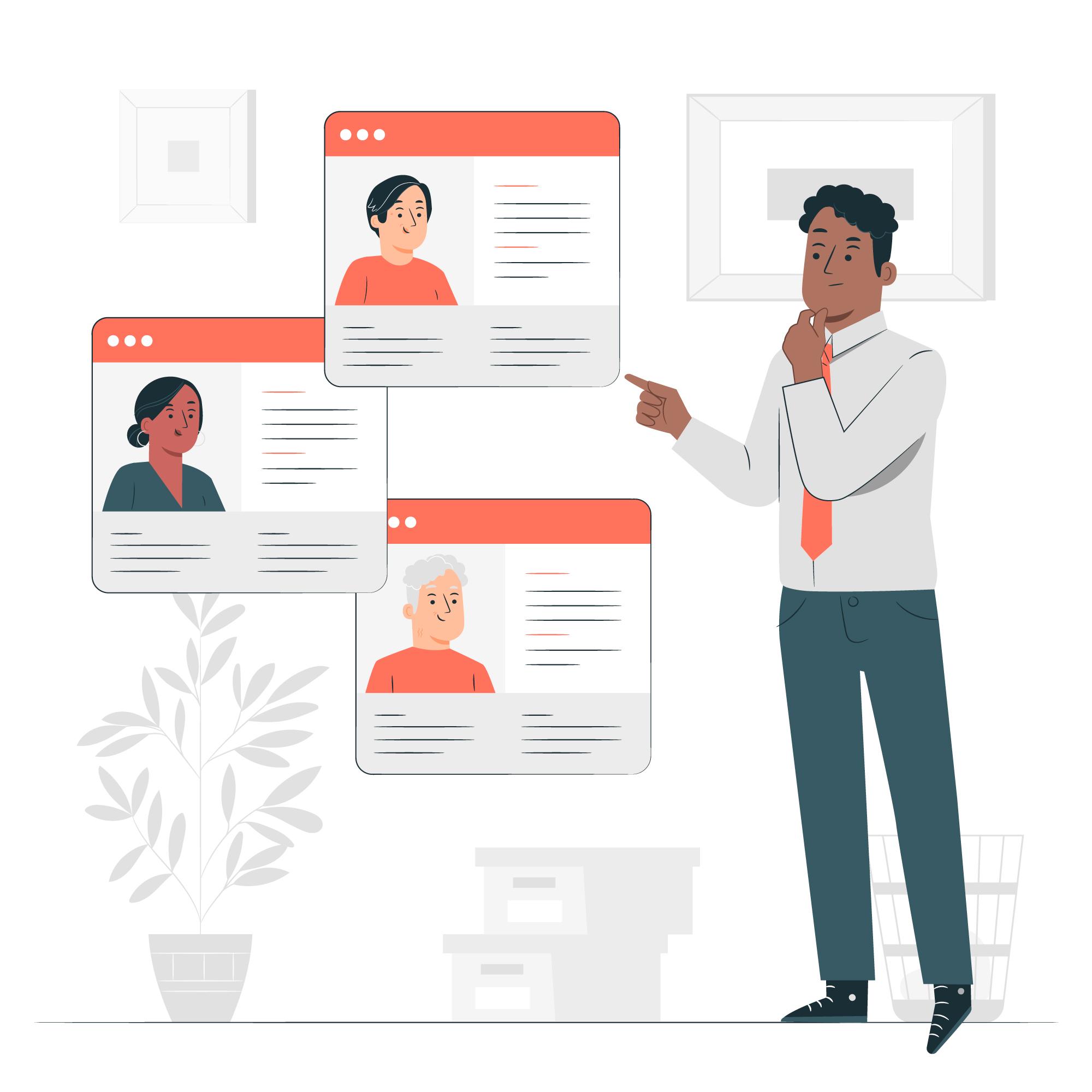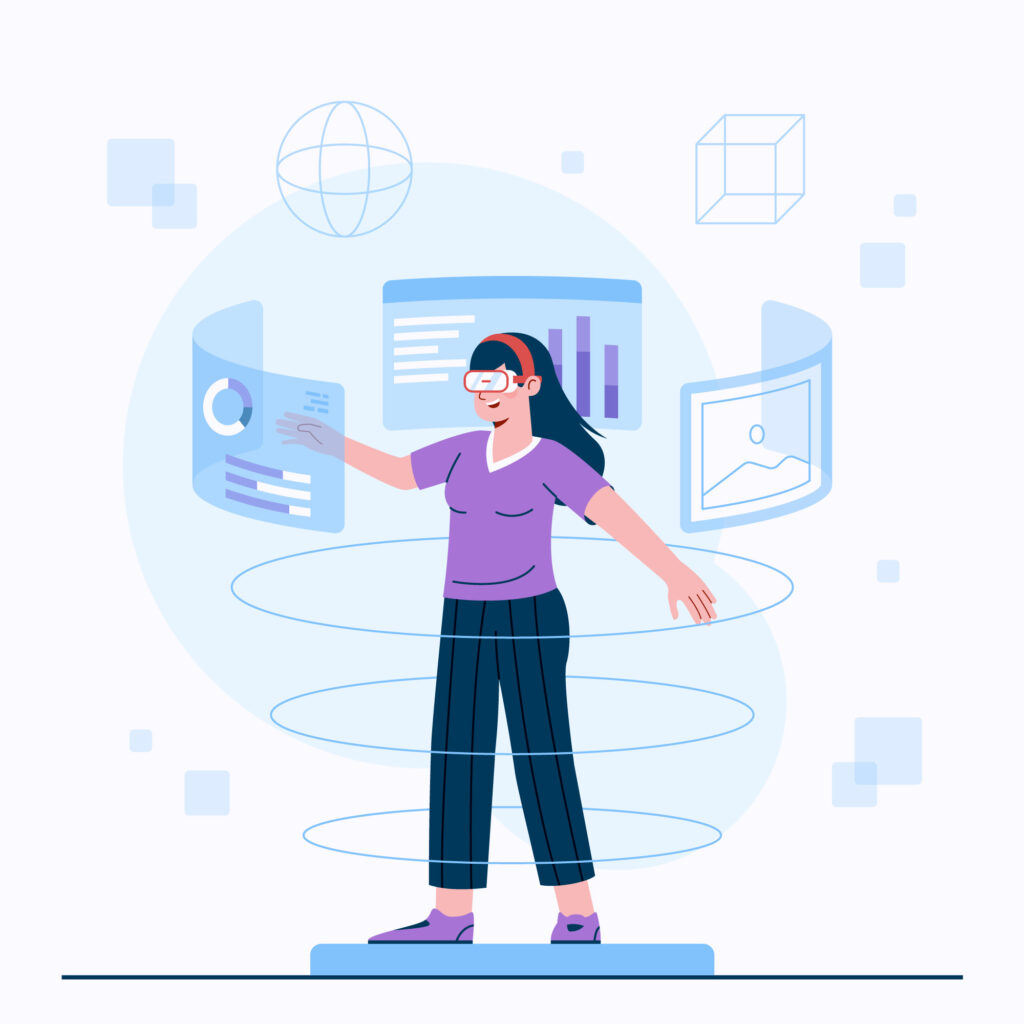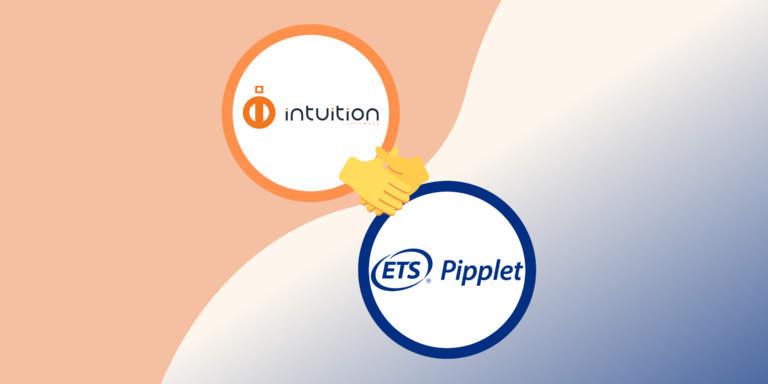The clock strikes midnight and the streets quieten down, but in workplaces around the world, a dedicated group of professionals are wide awake, working the night shift… This invisible workforce, responsible for night work, plays a crucial role in our society. But when it comes to hiring people for full-time, part-time or remote jobs, companies often feel trapped in a complex and confusing maze.
An impressive 16% of companies in the world now operate remotely, indicating a trend towards flexible and non-traditional working hours, including night and evening jobs… With the task of filling more jobs, managing countless applications and satisfying diverse job demands, the hiring process can sometimes seem overwhelming. What if we told you there was something revolutionary on the horizon?
Artificial intelligence is back in the spotlight, rewriting the rules of the recruitment game. 43% of employees use AI tools in their workflow. As a bonus partner in your hiring journey, AI tools are transforming the process, making it efficient rather than daunting, exciting rather than tedious. From the moment you post a job advert on a site to the moment you check for updates on applications, AI is there, streamlining the process and offering many other benefits.
Let’s dive in and discover the transformative power of AI in the hiring and onboarding process. So stay with us and let’s learn together about this revolutionary development.

Improved job offers:
As the hiring landscape continues to evolve, recruiters and companies are constantly looking for innovative ways to attract top talent; Job offers are one of the areas that are improving the most. With advancements in technology, companies like Intuition Software are bringing to the forefront enhanced job postings that are more interactive, dynamic, and targeted. Here’s how: Here’s how:
Targeted reach:
Thanks to the AI-driven tools at their disposal, recruiters can now reach potential candidates in a more targeted and effective way. Job advertisements can be tailored to attract specific skills, experience and qualifications, ensuring that they resonate with the right audience.
Interactive experience:
Job offers are no longer simply text advertisements. They have been transformed into interactive platforms, offering potential candidates an immersive experience. An AI interview tool, for example, can provide an overview of the position, making the job description more attractive.
A key part of this evolution is the ability to attract candidates with an attractive job offer using tools that improve the job description and make it more understandable.
Real-time updates:
In a fast-moving world, it is essential to keep your job offers up to date. Thanks to automated tools, any changes to job requirements, roles or company policies can be instantly reflected in the job advert. This means that candidates always have the most up-to-date information at their fingertips.
Inclusion :
Whether you’re offering full-time, part-time, remote or even night-time jobs, enhanced job offers guarantee inclusivity. They offer equal opportunities to everyone, regardless of location or available working hours.
Optimised visibility:
An improved job offer is more than just registering on a job site. It uses SEO tactics, social media channels and targeted advertising to increase visibility. The greater the reach, the greater the chances of attracting quality candidates.
AI-based skills assessments
Navigating the talent pool and finding candidates with the right skills can often be like finding a needle in a haystack. 65 to 71% of recruiters are currently using AI in the recruitment process. AI-based skills assessment is a revolutionary tool that considerably simplifies this process. Here’s an overview of how this tool is transforming talent acquisition and management:
Targeted assessments:
Traditional skills assessments are often long and general. However, AI-powered assessments are targeted. They are designed to accurately assess the specific skills that are important for a position, saving recruiters time and ensuring that only the most relevant candidates are shortlisted.
Assessments 24 hours a day, 7 days a week:
AI-powered assessments can be carried out 24 hours a day. This means that candidates who are in different time zones or who work nights can take the assessments at a time that suits them best.
Instant feedback:
AI-powered assessments don’t just assess, they also provide instant feedback. Candidates can see where they stand immediately after the assessment, and recruiters can use this data to make faster decisions.
Remote convenience:
Assessments can be carried out remotely, making them accessible to candidates from all over the world. This broadens the talent pool and offers equal opportunities to remote and part-time candidates.
Adaptive learning:
AI-powered assessments can learn from each assessment, constantly updating and refining their assessment parameters to ensure accuracy and relevance.
Behavioural analysis

AI has brought a significant advance to the recruitment landscape: its capacity for behavioural analysis. It offers numerous advantages to employers and potential candidates, giving them a head start in the competitive job market.
Companies had to rely on tedious methods to assess the suitability of candidates for a position. AI-driven behavioural analysis has streamlined this process, making it more efficient and accurate. It operates 24 hours a day, which is perfect for processing applications from different time zones, including those from jobseekers who spend the night on the site. Here’s how:
Decoding the human element:
Decoding the human element goes beyond examining a candidate’s qualifications and experience, venturing into personality traits, problem-solving abilities and other crucial soft skills. This advanced analysis enables companies to ensure that they don’t just hire and integrate a new employee, but that they find the ideal collaborator to contribute to the company’s growth.
AI behavioural analysis tools can search a candidate’s profile, drawing on past data to provide an in-depth view of their potential performance. This involves checking various data points, monitoring models and anticipating their reactions in certain situations. In this way, even before the first date of employment, the employer obtains a complete picture of the candidate.
Focus on work-life balance:
AI’s capacity for behavioural analysis also plays a key role in matching jobseekers with positions that match their lifestyle and career goals. These positions may be full-time or part-time, remote or on-site, or even night shifts. The analysis enables the algorithm to find opportunities that match the candidate’s profile and preferences, resulting in greater job satisfaction and a better work-life balance.
Protecting privacy is important:
When analysing behaviour, AI tools respect privacy. They operate within the framework of established regulations, guaranteeing data security and maintaining user confidence. What’s more, they are continually updated to keep pace with changing legislation, making them even more reliable.
Stimulate employment opportunities:
AI is helping to increase employment opportunities. It is changing the way recruitment is carried out, allowing companies to benefit from its efficiency and accuracy, while jobseekers find the positions that suit them best.
In short, AI behavioural analysis is a boon to the modern hiring process, making it faster, smarter and more responsive to the needs of employers and candidates.
Video analysis for assessment
In a world in the throes of digital transformation, video interviews are becoming a mainstay of the recruitment process in many sectors. AI plays a central role in this, offering advanced video analysis for candidate assessment. Technology has refined and accelerated employment, delivering superior results for employers and potential employees alike.
Improving efficiency:
Employers can examine different candidates without being limited by time constraints. Whether you work full time, part time or at night, the AI tool works 24 hours a day, 7 days a week. It analyses every video interview, sifting through countless hours of footage and delivering a comprehensive assessment in no time.
High-tech assessment:
The AI uses high-tech equipment for video analysis, which goes beyond observing a candidate’s verbal responses. It examines non-verbal cues such as facial expressions, body language and tone of voice. It can assess how well a candidate will fit into the organisation’s culture and predict their ability to manage different work-related issues. This year, many companies are turning to sophisticated AI video analysis as a reliable tool in the hiring process.
The learning process continues:
AI is constantly learning and updating its algorithms. The tool improves with each analysis, gaining a more nuanced understanding of what makes a good candidate for different sectors of activity. This constant learning and updating is essential in today’s ever-changing job market.
Work-life balance:
AI video analysis is constructive for employees who have other responsibilities. For example, parents with children at school can schedule and record their meetings without disrupting their routine. This aspect of flexibility has made AI a preferred tool in the hiring process.
Fair assessment:
Impartiality is another advantage of AI video analysis. The tool has no prejudices or preconceived notions that could influence hiring decisions. It only sees the data, which ensures that job offers are based on merit and aptitude.
If you want to take advantage of deferred video interviewing in your recruitment process, discover the new Visiotalent application integrated with our Jobaffinity recruitment software. This combination offers you a complete solution for your recruitment needs, capitalising on the best of AI technology and traditional hiring practices.
Better training resources
In today’s fast-paced business climate, superior employee training and development resources are key to improving productivity and organisational effectiveness. Artificial intelligence (AI) is a remarkable innovation that has changed the game in this field. It has led to a radical transformation in the way we think about skills development and employment opportunities, from recruit specialists on AI-powered platforms or have first-class integration tools.
One of the flagship products of this AI-driven revolution’AI is the AI-based job interview tool. This dynamic technology not only improves recruitment procedures, it also enriches training resources exponentially. Here’s a closer look at why this tool is fast becoming an essential part of career development:
Dynamic learning:
The AI interview tool is one step ahead of conventional methods, able to adapt and learn according to job requirements to produce more effective and accurate results. Operating 24 hours a day, it helps to build up a comprehensive database that enhances recruitment efficiency.
Immediate feedback:
AI tools offer the possibility of instant feedback. This tool provides candidates with constructive information to help them improve their skills. Feedback can range from advice on body language to suggestions on how to better articulate ideas.
Cross-sector applicability:
The application of AI training tools is not limited to a specific sector. They offer a wide range of training modules, making them suitable for a variety of sectors, including security, education and creative fields.
Accessible apprenticeships:
The undeniable advantage of AI tools is their adaptability to individual schedules. Distance learning opportunities can be accessed at any time and from any location, offering unrivalled flexibility.
Inclusive learning:
AI tools are designed to serve everyone, from part-time workers to full-time professionals. For those juggling work and family or working overnight, these resources offer the flexibility to learn at a time that best suits their needs.
Conclusion
The revolutionary integration of AI into hiring practices is transforming the recruitment landscape, making it increasingly efficient, fair and dynamic.
Improved training resources and automated CV selection save time while improving the overall quality of the applicant pool.
AI-powered skills assessment and behavioural analysis provide a more complete and accurate understanding of a candidate’s potential fit with the company.
Video analysis enhances this accuracy by allowing employers to assess candidates’ communication skills and body language, which are often overlooked in traditional hiring processes.
AI can help reduce unconscious bias, fostering a more diverse and inclusive workplace. As businesses continue to adapt and evolve in the digital age, using AI in recruitment is not just an option, it’s a necessity. It’s a robust tool that streamlines the hiring process and provides companies with the best talent to drive growth and success.









